Copyright Parental Control Products, LLC. All rights reserved worldwide. This publication may not be copied or reproduced without the express permission of the author.
What to do about MySpace.com
The dangers of Social Networking sites
Version 1.4
Amy Cainfield, Safety Director Parental Control Products, LLC.
A SPECIAL REPORT:
Copyright MySpaceMonitor.com. All rights reserved worldwide.
This special report brought to you by: TheParentFairy
Discover the real dangers of the online social networking sites your child loves so much….
Find Out What Your Child REALLY does on Social Networking Sites like MySpace and Facebook. Get ready because what you are about to read will take your breath away.
The truth is that every day kids online are susceptible to predators who set deadly traps for innocent kids. As parents, we want only the best for our children. We all work hard to help our kids become emotionally stable, financially successful adults, but for some this dream came to an end thanks to the social problems in society and their entrance into the homes through the internet.
Are you aware that right now, this very minute… your child may already be a victim? You might be thinking, “Not my kid….because he/she is in his/her bedroom doing homework. What could be a threat in the bedroom?” If your child is online, get ready to find out, and what you will find may shock you.
Parents who are unaware of what really happens online are endangering their entire family. For the sake of your child, and your family, I hope you are not one of them. Sadly, many parents who think they do know what their son or daughter is doing online are mistaken. Often they do not find out the truth until it is too late and their child has already become a victim or set themselves up to become one. Perfectly innocent your child could be doing things online that open the doors for disaster. It isn't just the naughty kids that find themselves in trouble. It isn't just the geeky kids either. It is every child that is on the internet for whatever reasons. The more active they are on the internet the more susceptible they are in unknowingly welcoming online dangers.
Even as you read this, the Internet, one of our most useful and beneficial creations, is putting your children at risk. The same technology that gives them the information they can use to create their own avenue for success also threatens their safety, security and future. Rightfully dubbed the “information superhighway”, the Internet can lead your child to information on any subject you can imagine. This is also a problem: Too often, the private, illegal, or false information your child finds can put them in the middle of horrible or even life altering situations. Online communities or social networking sites often provide the scene for harmful unprotected information. What starts out online can and in many cases quickly become a real-life face-to-face problem.
For many of today's kids, there is no sharp boundary between their online and offline lives. If another child at school has a problem with your child, it can quickly spill over into the Internet, and once there it provides yet another avenue for predators to find their victims.
These increasingly popular social networking sites offer people a way to connect and communicate with friends and others with similar interests. These “virtual communities” are the perfect way to “get together” without actually being face-to-face. Initially the concept behind these websites sound harmless. Investigate a little deeper and you will find a frightening reality.
In addition, while “social networking” sounds like a positive, constructive way for kids to spend their time, there’s much more involved….and it’s not all good. MySpace.com for example is the most popular after-school hangout destination for teens and even younger children in some cases. MySpace, Live Journal, Face book and hundreds of other social networking sites give your children the opportunity to meet friends with similar interests, talk openly, and get creative as they build their “space” on the network with their own “personal page.” But when your son or daughter hangs out with online friends using tools like Myspace.com, chat rooms, emails, or instant messaging, they could easily be talking to someone they only just "met." They do not really know WHOM they are talking to or what that person will do with the information they share. All they really see are lines of text on a screen. This is especially true if your child has an account on social networking sites like MySpace.com.
The FBI estimates that there are over 1 million sexual predators online at any given time. Moreover, where do you suppose they hang out online? That’s right; anywhere kids do. If nobody sets specific guidelines and controls, the doors are open for anyone that wants to enter. Unfortunately, teens rarely use privacy controls or any other preventative measures to protect themselves online.
Most kids think things only happen to other people, nothing can happen to them. After all, “How can they find me in real life?” It then comes as no surprise that tragic news stories involving teens and sites like MySpace are becoming commonplace.
The documentation is clear: many crimes involving kids, as both targets and offenders, stem directly from MySpace and other social networking accounts. As you read this, an online predator could very well be profiling your child in order to “groom them” online for a meeting, abuse or worse - all without your knowledge.
Recent Abuse Cases Document the Problems:
MySpace accounts have the very strong potential to generate real-life problems if the user is careless about the amount of personal information they share in their online profile or during chat sessions. Even if a teen does not intend to do anything risky, dangerous situations are common and typically results from the teen just not using common sense. The worst part of these situations is that MySpace and similar social networking sites have become so entrenched in youth culture that teens often think of them as safe havens from the persecution of the real world.
Your child might be totally innocent and unaware of the danger until they find themselves faced with threatening and potential harmful events that happen when social networking interactions move offline and into the real world. Another problem stemming from this is that once a child finds themselves in trouble online, they don't want to tell their parents for fear they have done something wrong, or because they feel embarrassed to have been so foolish.
The following excerpts from CBS 11 News, Grapevine, TX, demonstrate the real dangers of MySpace.
Teen’s Trouble Begin from MySpace Accounts
Sep 13, 2006 3:27 pm US/Central
“CBS 11 News - GRAPEVINE: Grapevine Police say that they have a big lead on identifying a suspicious middle-aged man who attempted to contact a teenage girl at her home.
Authorities say that they believe the man may have found the girl through the MySpace networking website. The 16-year-old girl told police that she had posted photos of herself and personal information on her MySpace account, even stating that she lives in Grapevine. According to the police, with just that little bit of information, predators are able to track down their victims. A police bulletin led to an anonymous tip that identified the suspicious man as a delivery driver who lives more than 200 miles away from the teenage girl he tried to meet.”
Some people will go to extreme measures to satisfy their desires. Sexual abusers, drug dealers, and other criminals targeting minors are all willing to monitor, track, and wait until the time is right to pounce. Most of them are targeting multiple children anyway, so waiting for the right moment is not difficult for them. Therefore, parents must take the responsibility to do all they can to prevent their child from becoming a victim. No one else has your incentive; no one else cares the same way you do and no one else will take on this job for you. Another case involved a teenage honor student.
Once again, the parents had no idea anything was wrong. An easy mistake to make, but what a costly one.
Take the following example.
Honor Student is Missing:
“ABC NEWS- June 12, 2006 — Katherine Lester's parents thought they had no reason to doubt their daughter when she told them she needed a passport for a trip to Canada with friends. The 16-year-old Gilford, Mich., honor student had never deceived
them in the past. However, Lester really needed the passport to head to Israel's West Bank, one of the most dangerous parts of the world, to meet a 25-year-old man whom she had met on MySpace.com. Katherine Lester apparently flew to the Middle East last Monday. At first, her family had no idea where she had gone, and made a public plea. "Please come home. Katherine, please. We need you," said her sister, Mary Lester.
Soon the FBI unraveled the mystery. The young girl had been corresponding for three months with a man she met on MySpace.com. Her MySpace.com profile says she is from "Small Town, Michigan" and was accessible only to people on her "friends" list.
"She had met someone that she really seemed to care for quite a bit and wanted to go meet with him," said FBI official Dan Roberts.”
In recent months, MySpace has made the national news repeatedly for its perceived role in many child abduction cases. Teen profiles can include everything from home addresses and phone numbers to photos of girls in provocative poses and kids hoisting whiskey bottles. To an online predator profiles like these just scream out “Potential Victim.” This excerpt from ABC NEWS shows just how damaging the freedom of teens on MySpace or other social networking sites can be.
Getting In Deep with the Wrong Crowd
“May 18, 2006 — MySpace.com exemplifies one of the hottest Internet trends — an online community where people post profiles in search of whatever and whoever. Think of it as a diary, but a diary you want others to read.” … The goal is to link up with others, forming groups with similar interests. It is as wholesome as cheerleading and baseball, or as troubling as guns, sex, and drugs. "It was easier to find people who did drugs than just like walking down the street," Sarah told "Primetime." "Every weekend I would find more people, and it would get deeper and deeper."
Is Someone Exploiting Your Child's Emotions?
More innocent in the ways of the world than they actually believe, teens and preteens are in the process of developing social interactions with the adult world. Neither an adult nor a child, teens are searching for their individual identities and way of life. Driven by raging hormones, the desire for attention and the need to be part of the “in” crowd; the isolation and peer pressure some teens feel is incredibly strong. When combined with the lack of impulse control common to adolescents, the temptations of “being an adult” are easily taken to new heights by the opportunities they find online. In fact, peer pressure to do things and fit a certain personality profile, will often dictate just what a teen will and will not do.
For a teen sitting before a computer screen, the blank spaces in their profile make the temptation to appear to be just whatever they want very enticing. The real-life lonely, not so popular teen can create an online persona where they are the star: all from behind the secrecy of their keyboard and the “security” of their bedrooms. MySpace can add six inches of height, cure acne, and make a nerd into a jock with a few simple keystrokes. Just like most of us when we were young, today’s teenager will do and say things “outside of the family,” most parents would never imagine. Some things never change, but other things can change dramatically without anyone even noticing.
Many parents think bad things can only happens to other children, and that theirs are safe. 63% of parents cannot envision their child being a part of potentially harmful, sometimes even deadly social environments found online. Unfortunately, if there is a computer in the house your child could be a part of something you could never imagine.
The FBI’s most recent estimate is that there are one million pedophiles online. That does not count the people who are trying to get to your money through your children by introducing them to substance abuse, drugs, or alcohol. Nor does it include those hoping to hack into your home computer and steal your identity as well as your money. Put everything together and you have the potential for a real-life nightmare…all because you do not know whom your child is talking too or what they are doing online.
The fact that a child is doing well in school, and has “never been in any trouble” is no reason to allow unsupervised access to the internet - ever. Even a so-called “Good Kid” just does not have the life experience or judgment of an adult. As a result, they can and do make bad sometimes life threatening decisions. Many parents find it difficult to accept (or are in denial about) what kids post and discuss online. Some simply refuse to believe that it can lead to face-to-face meetings, confrontations, harm and danger. However, it happens – often. Kids call it “MIRL” or “Meeting in real life.”
Bridging The Technology Gap:
Most parents never had the opportunities available to today’s kids. There was no such thing as the Internet and no opportunity to go online and interact with anyone, be they friends or complete strangers. As a result, many parents often feel overwhelmed by the fact that their kids are more comfortable with technology than they are. Blogging, instant uploads and downloads; live video cams, pod casts, and even mobile access from cell phones are normal ways for kids to communicate with their friends. In many families, the parents use their cell phones to make phone calls, while their children are sending text messages.
For most kids, internet technologies are the norm and nothing is difficult. For parents however, it often feels as if they are thrust into a world where they are responsible for their children’s safety and well-being in the face of an enemy they do not understand. The enemy is quite visible, but their attacks are not. It is a world where nothing in the parents’ previous experience has prepared them to face. As one mother put it, “I’m just now beginning to understand instant messaging and navigating the internet for myself. Now I have to learn blogging, audio, and video online, and who knows what else to make sure my kids are safe online. Even then, how do I keep up with what they’re doing and where they’re going online?”
MySpace General Content Stuns Parents:
Visit MySpace.com and the kinds of content teens post in their profiles will stun you. Browse through the site and you will find all kinds of pictures, comments, and suggestions that would never imagine your child saying or doing. There are pictures of teens posing in underwear, binge drinking, apparent drug use, teens simulating sex, and even pictures of members having sex. Other pages may appear less troubling; with acceptable, normal content, but do not let that fool you. These pages can also be a danger to your child. For example, teens who list their names, addresses, cell phone numbers, and after school schedules are advertising their life to the world, all without any thought of the danger that they are putting themselves in.
If your child has a MySpace page, you must make sure that they do not reveal too much personal information. There are certain basic privacy procedures, such as restricting the visibility of your child’s profile to people who have already been pre-approved that are vital. It is crucial to make your teen aware of the dangers of sharing personal information online, no matter what online site they visit.
Even if your child is lucky enough to avoid the notice of an online predator, what they post on a social networking site can still come back to haunt them later. College admissions counselors, guidance counselors, law enforcement officials and even potential employers all use social networking sites as a research tool. Most teens never even think about how long those pictures may stay online, or who may see them in future. Remember, once you post something to the Internet, it is there forever. However, no matter how cool they think they are now for posting that picture of themselves doing a bong hit; it will not score them any points on with the collage admission board, or a future employer. Most kids just do not understand the long-term consequences of the actions they take today.
How to Protect Your Child from Internet Predators and Other Dangers Online
Technology is a crucial part of education, business, and communication in general. The Internet is a vital part of today’s society, and all the signs show it is only going to integrate further into all our daily activities. A child without computer experience is missing skills that are as important for their future as the ability to read, write and drive a car. Obviously, we cannot keep our children in a bubble and prevent them from going on the Internet. However, there are things you can do to help keep your child safe online. Just a few simple procedures can give you security and relieve your concerns about their online activities.
First, educate yourself and your child about the risks involved with going online. Let them know what can go wrong. Get involved with your children’s online activities. Sit with younger children when they are online.
In today’s world, there are children as young as six who have their own computers. Remember, as convenient as it may be, the computer is not a baby-sitter.
Set limits regarding what children can and cannot do online. Even if you are not always able to watch everything your child is doing, just knowing you can glance over their shoulder at any time gives the child a sense of supervision. They are much less likely to visit unsafe areas.
Have open discussions with your child and make sure they understand the potential harm. Review sites together and agree on what you will allow and what you will not.
Set firm guidelines for your child about what is and is not acceptable. Violation of these guidelines should come with restrictions. A week without the internet could be what it takes to keep your child within the guidelines you set.
Some Common Sense Guidelines for Parents
1. Take the time to supervise your child’s online time. Nothing can substitute for active parenting. Put the computer in a public space, where you can see the screen. The kitchen or living room is ideal. Never allow a child to have a computer in their bedroom.
2. Do not permit your teenager to password protect their identity on the computer. As a parent, you should have full access to the computer at all times in order to monitor the child and know exactly what they are doing on the computer.
3. Talk to your teen and insist that they post nothing that might compromise their personal information. This includes their last name, where they go to school, where they work, their address, phone numbers, date of birth, or where they like to hang out with their friends.
4. Suggest to your teen that they not use a real photo of themselves in their online profile. If they balk – and they will, suggest that they use a fake or modified photo or cartoon. This provides some anonymity. Their real friends will already know who they are and what they look like.
5. If your teenager is doing anything less then appropriate online search for their profile and talk to them about it. If they are not excited about sharing the details, you might wish to install parental control software or a key logger of some sort.
6. Ask your teen not to interact with people who are over 18 unless they know them in real life. Remember, most predators fake their ages in order to appear to be younger in order to gain trust.
Software technology can also help you set and enforce appropriate guidelines and limits as well.
1. Set your web browser to limit access to inappropriate sites.
2. You can (and should) set up a limited user account for each child on your home computerto restrict certain activities without your permission. If your child cannot install programs without your permission, they are much less likely to infect your computer with a virus.
3. Make sure you ask for and get all of your child’s online user names and passwords.
The Argument of Parents Rights V.S Teen Privacy:
Your teen is almost certain to feel violated by your “snooping into their private lives.” After all, teenagers do require a certain amount of personal privacy for social growth, but you are still the parent and you are responsible for their safety and guidance. As long as your child is under the age of eighteen, you have every legal (and moral) right to view anything and everything they do online.
As a parent, you may feel like you are spying on your kids. Deal with it. You are.
If that is what it takes to keep your family safe from harm, so be it. You are acting as a responsible parent. Whatever embarrassment or betrayal your child may feel is minor. It does not compare to what can happen if you let them do what they want online without limits or guidelines.
You are the responsible adult. Your children are just that: children. They do not have enough experience with life to handle the potential danger of the Internet without adult supervision and guidance. Some parents opt to give their teen fair warning before they view their online accounts. You may want to tell your teen, “I’d like to see your MySpace site tomorrow. This gives them time to “clean it up.” Other parents like to make a surprise visit. The choice is yours…the important thing is to get involved in your child’s online activities and remain involved.
Set the Tone with an Open Mind for Strong Parental Control:
I am sure you see the importance of parental control of your child’s online activities. The key is to approach the matter with an open mind. After all, no parent wants a difficult confrontation with his or her child. Still, when there are safety concerns and their future is involved you must do whatever it takes.
If your parental control measures seem a bit strong to your child, simply remind them of what can happen and give them specific examples. Educating your child about the various dangers they face, and using some sort of parental control software, helps you create a safer online environment for everyone involved.
Children can go places online that their parents would never allow them to visit in the “real, brick and mortar” world. They will do and say things sitting at a computer screen, they would never do face-to-face. Many teens will try to get away with things when there is no one looking. If you are not home, they may feel free to visit sites you have put off limits. Imagine the look on a teenage boy’s face when you ask him why someone used his computer account to try to visit a pornographic site ten minutes after you left the house. If they know you have access to all their activity, they are more likely to stick to the rules and remain safe.
It may be true that your kids know more about technology than you do. However, the important thing to remember is that you know more about life than they do.
While most kids will moan and groan about their parents and the rules they set, they DO want you to care. Whether they admit it or not, your guidance and concern is an important need in their life. Their activity online is no exception. These conversations are most likely going to be stressful and tense. Most teens dislike rules and many of them are going to get angry about having to adhere to your new rules. You need to be prepared to work through these situations with determination, focus, and love.
Always remember you are the one responsible for your child. No one else is, just you. By showing your teen the potential threats to their safety, you are setting the pattern for safe and responsible behaviors down the road.
Showing Teens The Right Path Is Easy
When speaking to your teens about the dangers of social networking, here are some suggestions that you can make that will go a long way to keeping your child safe online.
1. When build your site/page keep it rated PG. Avoid inappropriate language, sexual
imagery, or adult themes.
2. Never list the city where you live or other personally identifiable information such as where you go to school, what sports teams you play on, where you go to work, etc.
3. Always keep your MySpace email address PRIVATE or your profile may be the target
high jacked.
4. Don’t try to be someone you are not. If you are 16, be sixteen and do not try to act 25. You may not appreciate the type of people that you profile will draw.
5. Don’t judge a profile only by the comments on a page. All to often people that list hundreds of friends in their profiles actually don’t know most of the people they call “friends.”
6. There is no need to accept friend requests from everyone. You can deny or block users that you do not know, or look suspicious. Use your account privacy settings to hide your online presence and only accept friends that you know.
In Closing
If you find that talking to your child and monitoring their activities on social networking sites is not enough to prevent the behavior that could cause trouble for them now or in the future, then you may want to consider restricting access to MySpace. Be warned, however, kids will be kids and many of them will go to a friend’s house or gain access another way if you decide to prevent access to MySpace from your home.
However, if you take no action and ignore the reality of what your child can get into on the net and you are leaving the door wide open for trouble with your blessings. So stay on top of your child’s online activities. The monitoring you do today could save your child’s future.
Resources for Parents
• Parental control software such as PC Tattletale provides parents with an easy to use solution that helps parents know exactly what is going on when their children are online. Once the software is on the computer that your child uses it only takes one click of the mouse to see exactly what he or she did online. Advanced keystroke logging records every keystroke including passwords, making it possible for you to see exactly what your child sees when they log into sites like MySpace.com, FaceBook.com, LiveJournal.com, and any other chat and social networking sites. You will even be able to tell if your child has set up a second, hidden profile that they use with a MySpace account you may know nothing about. More advanced than general web filters, this software offers total monitoring and URL specific tools all in one.
• Teen Chat Decoder.com is an online acronym decoder that allows parents to
“decode” the abbreviations kids use online.
• How to Protect Your Children on the Internet: A Road Map for Parents and Teachers.
• Connect Safely is a new resource created by Larry Magid of Safekids.com and Anne Collier of Net Family News. It outlines basic guidelines for teens' safe blogging and social networking.
• OnGuard Online from the Federal Trade Commission provides good advice on safe social networking.
• For parents, there is the new Connect Safely Forum. (Kids are welcome, too!) Post your concerns, share your concerns, and ask other parents (and teen bloggers) questions about their experiences with social networking.
The most responsible area parents can fulfill is to protect their child online, 24 hours a day, 365 days a year. The only way to be sure that your child is safe online is to know what they are doing and to whom they are talking. You need to find a way to monitor both sides of communication as well as your child’s activity online. For this purpose using an Internet monitoring software such as PC Tattletale provides you with the tools you need to protect your child online and limit their online activities to those you approve.

You can have a tattletale on your computer to protect your child. Feel free to investigate how it works to promote Child Safety Online A free trial is available and the product is guaranteed.
Saturday, December 20, 2008
Child Safety Online - Press Release
Posted by The Parent Fairy at 4:53 AM
Labels: child internet safety, Child safety online, children online, internet safety for kids, online safety, parenting teens, raising kids, safety online
Subscribe to:
Post Comments (Atom)








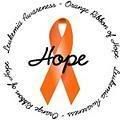

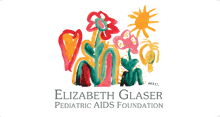

































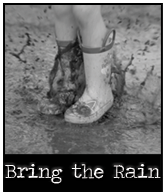












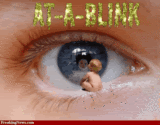


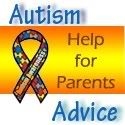





0 comments:
Post a Comment